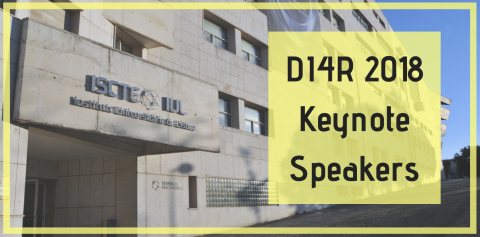How to exploit the multidisciplinary potential of Oral History narratives
Date:
Wednesday, September 28, 2016 - 11:30
Overview:
Elicited personal spoken narratives have a physical dimension - pressure waves traveling through the air between two speakers - and a semantic dimension - memories and self representations that are woven into a co-created story. The story can be suited for scholarly use or reuse and for a variety of purposes. It may contain references to facts that are omitted from written sources, it can shed light on coping mechanisms to overcome adversity, but it can also offer insights in the structure of dialogue, the relation between vocal and facial expression and gender-related aspects of language use.
Progress in digital technology has transformed the oral history landscape. Before the ‘digital revolution’, the only viable way to access and analyse this type of data was through its textual representation: printed catalogues and transcripts. Nowadays, a considerable number of the vast array of oral history collections that have been created worldwide since the introduction of cheap recording technology in the 1960’s, is available online. Individual researchers are increasingly encouraged to deposit their interviews after completion of their research, so that other scholars can reuse them. This has yielded a huge potential of useful data for multiple academic audiences.
The question is how digital tools created to support humanities research in general, can be tailored to extract the characteristic features of personal narratives in ways that match specific methodologies of diverse disciplines. In other words, how can innovation in computer science support the exploitation of this multilayered type of data and bring about innovation in cross-disciplinary scholarly research? Search technology has provided new frameworks that facilitates interaction with the data at various semantic levels. Progress can also be observed with regard to manual annotation tools. But when it comes to the next stage of the research process, the analysis of data, the bottle neck for wide-scale reuse of oral history remains the lack of transcripts, because of the dependency on the labour-intensive process of manual transcription. How to set the agenda for collaboration between developers and the various scholarly communities that want to use oral history material as research data?
I hope this paper will be part of a session submitted on this topic and would be happy to be out alongside any other papers that fit into that session on this topic. This topic is important as we need a cross disciplinary understanding of the research needs for presenting oral history and other qualitative data. Many repositories are now trying to do this and we would like to encourage use of best practice techniques.
Expected joint outputs would be:
* a short paper on competing metadata standards, which will feed in to the CLARIN and CESSDA ESRFI networks
* a full description of the Veteraans system, tools and metadata schemas used
Dr. Stef Scagiola is a postdoc researcher at the Erasmus University working on projects AXES, CroMe and Oral History Today. She is a historian specialized in digital audiovisual archives, with an emphasis on oral history collections. From 2006-2011 she was the coordinator of an oral history project conducted at the Netherlands Institute for Veterans which resulted in the first large scale ‘digital born’ interview collection in the Netherlands. It consists of more then 1000 life-history interviews from among a representative sample of Dutch war- and military mission veterans. http://www.eur.nl/erasmusstudio/people/current_members/dr_si_scagliola_s...
Target Audience:
Repositories, research tool providers, metadata experts dealing with social science and digital humanities data collections
Benefits for Audience:
What are the most popular ways of publishing qualitative data, such as oral history collections. What functionality is required - e.g. search, locate, cite, annotate, and what metadata schemas and publishing workflows are needed to support these.
Topic 4: Working with data
| Presenter | Organisation | URL |
| Scagiola Stef | Erasmus University | http://www.watveteranenvertellen.nl/ |



